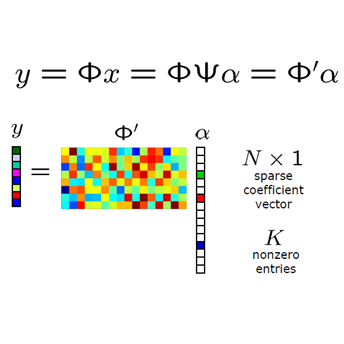This paper investigates the recovery of a spectrally sparse signal from its partially revealed noisy entries within the framework of spectral compressive sensing. Nonconvex optimization approaches have recently been proposed based on low-rank Hankel matrix completion and projected gradient descent (PGD). The PGD however involves unknown tuning parameters and its theoretical analysis is available only in the absence of noise. In this paper, we propose a hyperparameter-free, vanilla gradient descent (VGD) algorithm and prove that the VGD enables robust recovery of an $N$-dimensional $K$-spectrally-sparse signal from order $K^2 log^2N$ number of noisy samples under coherence and other mild conditions. The above sample complexity increases by factor $logN$ as compared with PGD without noise. Numerical simulations are provided that corroborate our analysis and show advantageous performances of VGD.
翻译:本文调查了在光谱压缩感测框架内从部分暴露出的噪音条目中回收光谱稀疏信号的情况。最近根据低级汉克勒矩阵完成和预测梯度下降(PGD)提出了非convex优化办法。然而,PGD涉及未知的调试参数,只有在没有噪音的情况下才能进行理论分析。在本文中,我们建议采用无超光度无香草梯度下降算法,并证明VGD使得能够在连贯和其他温和条件下从1美元K ⁇ 2 log ⁇ 2N$-光谱颗粒信号中强有力地回收1美元-维维维的热量样品数量。以上样本的复杂性比无噪音的PGD增加了1美元系数。提供了数字模拟,以证实我们的分析并显示VGD的有利性能。


